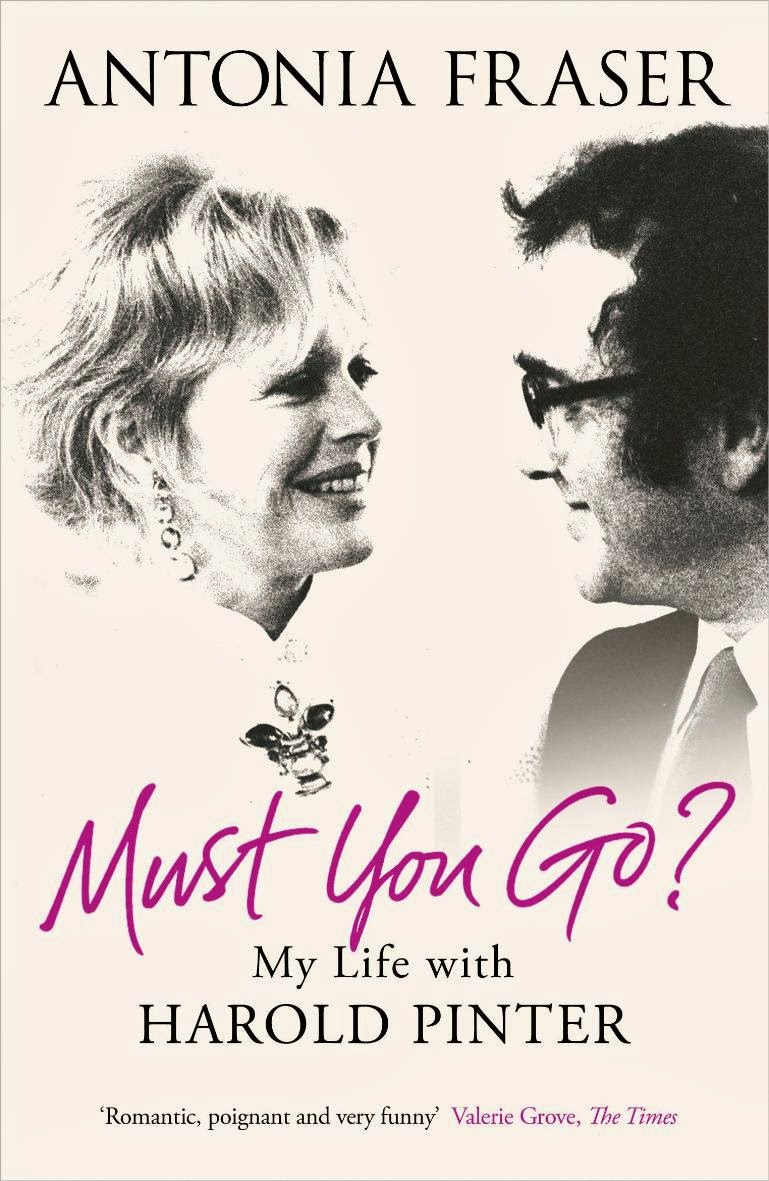 In The Year of Magical Thinking Joan Didion (M), with great emotion, described an event that will one day be familiar to one partner of all couples. One day you will lose that partner and your life will go on. Didion's husband John Gregory Dunne died in front of her one day at the dinner table and her memoir became her way of processing this loss.
In The Year of Magical Thinking Joan Didion (M), with great emotion, described an event that will one day be familiar to one partner of all couples. One day you will lose that partner and your life will go on. Didion's husband John Gregory Dunne died in front of her one day at the dinner table and her memoir became her way of processing this loss. |
| Photo: Brigitte Lacombe |
 A few year later her daughter Quintana Roo was to succumb to pancreatitis and die at the age of 39 - an unthinkable event for any parent. In Blue Nights (M) Didion once again explores her grief and examines her memories of Quintana's childhood asking herself repeatedly if she loved her daughter enough. Any reader would agree that she of course had loved her enough. Quintana Roo was adopted as an infant and grew up the the privileged company of Hollywood insiders. Didion bristles at the word privileged in connection with her daughter's childhood, but what other word can you use to describe the child's designer clothes, posh restaurants and hotels, and famous friends. Quintana was a precocious and anxious child, leaving her mother to wonder after her death if she feared abandonment as surely all adopted children do. Quintana struggled as an adult as well with mental health issues and self-medication and Didion, as I'm sure any parent would in the same situation, doubts that she was ever competent to care for this child. Her fears will never be assuaged and the reader feels sad for her.
A few year later her daughter Quintana Roo was to succumb to pancreatitis and die at the age of 39 - an unthinkable event for any parent. In Blue Nights (M) Didion once again explores her grief and examines her memories of Quintana's childhood asking herself repeatedly if she loved her daughter enough. Any reader would agree that she of course had loved her enough. Quintana Roo was adopted as an infant and grew up the the privileged company of Hollywood insiders. Didion bristles at the word privileged in connection with her daughter's childhood, but what other word can you use to describe the child's designer clothes, posh restaurants and hotels, and famous friends. Quintana was a precocious and anxious child, leaving her mother to wonder after her death if she feared abandonment as surely all adopted children do. Quintana struggled as an adult as well with mental health issues and self-medication and Didion, as I'm sure any parent would in the same situation, doubts that she was ever competent to care for this child. Her fears will never be assuaged and the reader feels sad for her.And in another literary exploration of grief and loss, there is Must You Go: my life with Harold Pinter (M) by Antonia Fraser.
 "When Antonia Fraser met Harold Pinter she was a celebrated
biographer and he was Britain's finest playwright. Both were already
married - Pinter to the actress Vivien Merchant and Fraser to the
politician Hugh Fraser - but their union seemed inevitable from the
moment they met: 'I would have found you somehow', Pinter told Fraser.
Their relationship flourished until Pinter's death on Christmas Eve 2008
and was a source of delight and inspiration to them both until the very
end. Fraser uses her Diaries and her own recollections to tell a
touching love story. But this is also a memoir of a partnership
between two of the greatest literary talents, with fascinating glimpses
into their creativity and their illustrious circle of friends from the
literary, political and theatrical world." publisher
"When Antonia Fraser met Harold Pinter she was a celebrated
biographer and he was Britain's finest playwright. Both were already
married - Pinter to the actress Vivien Merchant and Fraser to the
politician Hugh Fraser - but their union seemed inevitable from the
moment they met: 'I would have found you somehow', Pinter told Fraser.
Their relationship flourished until Pinter's death on Christmas Eve 2008
and was a source of delight and inspiration to them both until the very
end. Fraser uses her Diaries and her own recollections to tell a
touching love story. But this is also a memoir of a partnership
between two of the greatest literary talents, with fascinating glimpses
into their creativity and their illustrious circle of friends from the
literary, political and theatrical world." publisher







No comments:
Post a Comment